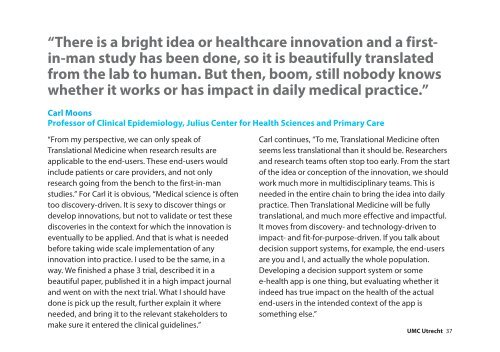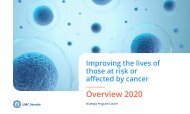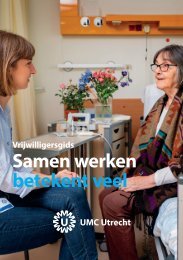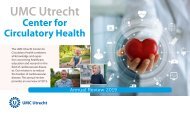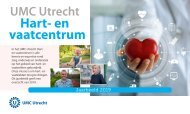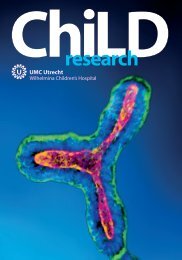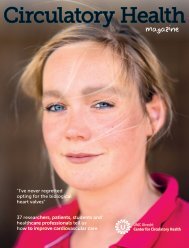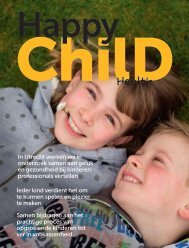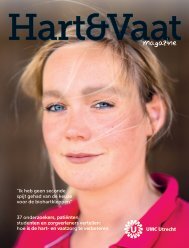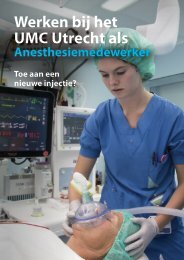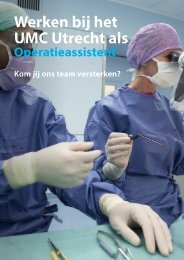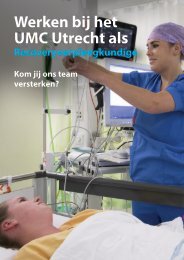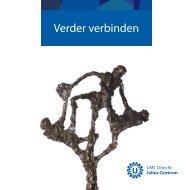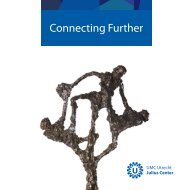RVB Translational Medicine Book
Create successful ePaper yourself
Turn your PDF publications into a flip-book with our unique Google optimized e-Paper software.
“There is a bright idea or healthcare innovation and a firstin-man<br />
study has been done, so it is beautifully translated<br />
from the lab to human. But then, boom, still nobody knows<br />
whether it works or has impact in daily medical practice.”<br />
Carl Moons<br />
Professor of Clinical Epidemiology, Julius Center for Health Sciences and Primary Care<br />
“From my perspective, we can only speak of<br />
<strong>Translational</strong> <strong>Medicine</strong> when research results are<br />
applicable to the end-users. These end-users would<br />
include patients or care providers, and not only<br />
research going from the bench to the first-in-man<br />
studies.” For Carl it is obvious, “Medical science is often<br />
too discovery-driven. It is sexy to discover things or<br />
develop innovations, but not to validate or test these<br />
discoveries in the context for which the innovation is<br />
eventually to be applied. And that is what is needed<br />
before taking wide scale implementation of any<br />
innovation into practice. I used to be the same, in a<br />
way. We finished a phase 3 trial, described it in a<br />
beautiful paper, published it in a high impact journal<br />
and went on with the next trial. What I should have<br />
done is pick up the result, further explain it where<br />
needed, and bring it to the relevant stakeholders to<br />
make sure it entered the clinical guidelines.”<br />
Carl continues, “To me, <strong>Translational</strong> <strong>Medicine</strong> often<br />
seems less translational than it should be. Researchers<br />
and research teams often stop too early. From the start<br />
of the idea or conception of the innovation, we should<br />
work much more in multidisciplinary teams. This is<br />
needed in the entire chain to bring the idea into daily<br />
practice. Then <strong>Translational</strong> <strong>Medicine</strong> will be fully<br />
translational, and much more effective and impactful.<br />
It moves from discovery- and technology-driven to<br />
impact- and fit-for-purpose-driven. If you talk about<br />
decision support systems, for example, the end-users<br />
are you and I, and actually the whole population.<br />
Developing a decision support system or some<br />
e-health app is one thing, but evaluating whether it<br />
indeed has true impact on the health of the actual<br />
end-users in the intended context of the app is<br />
something else.”<br />
UMC Utrecht 37


